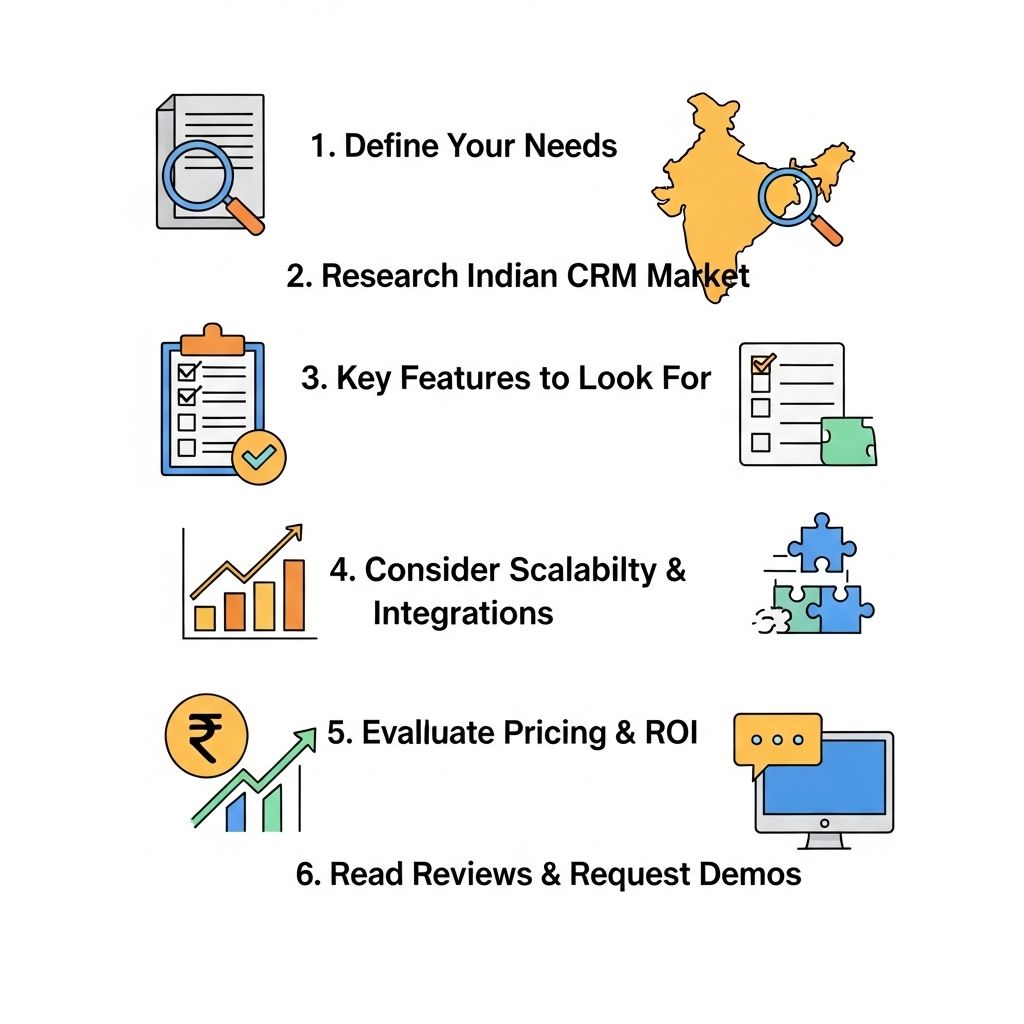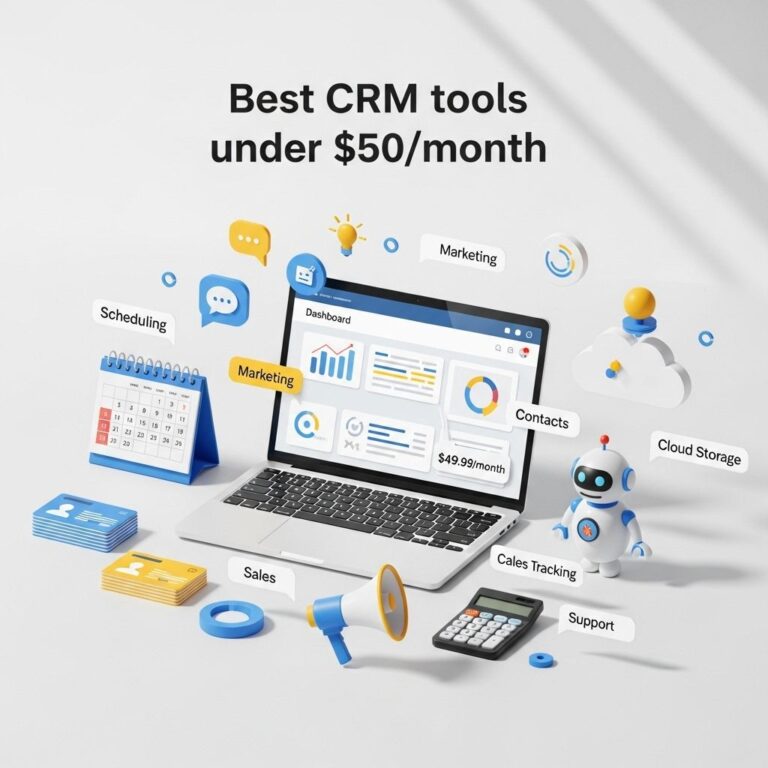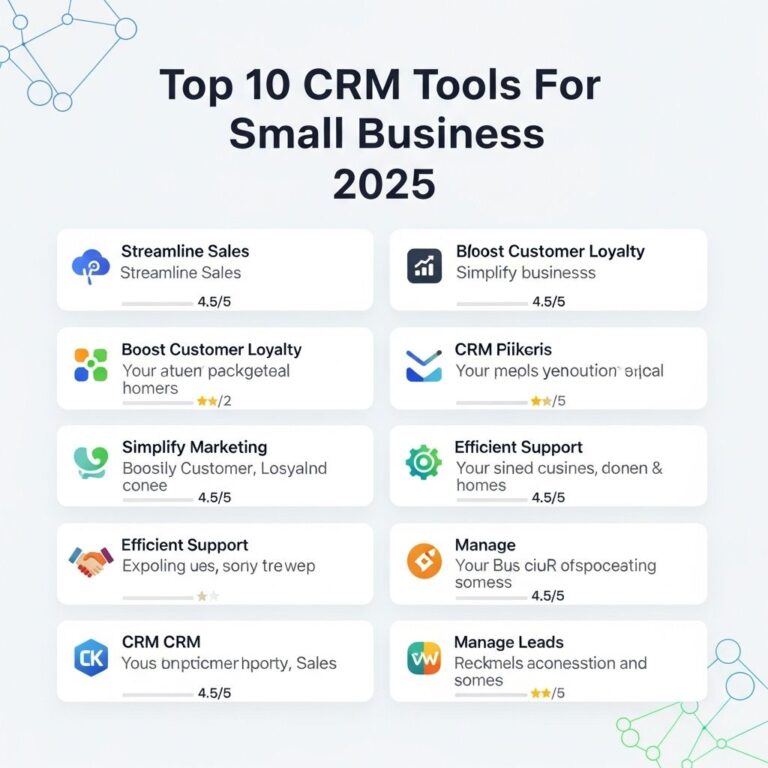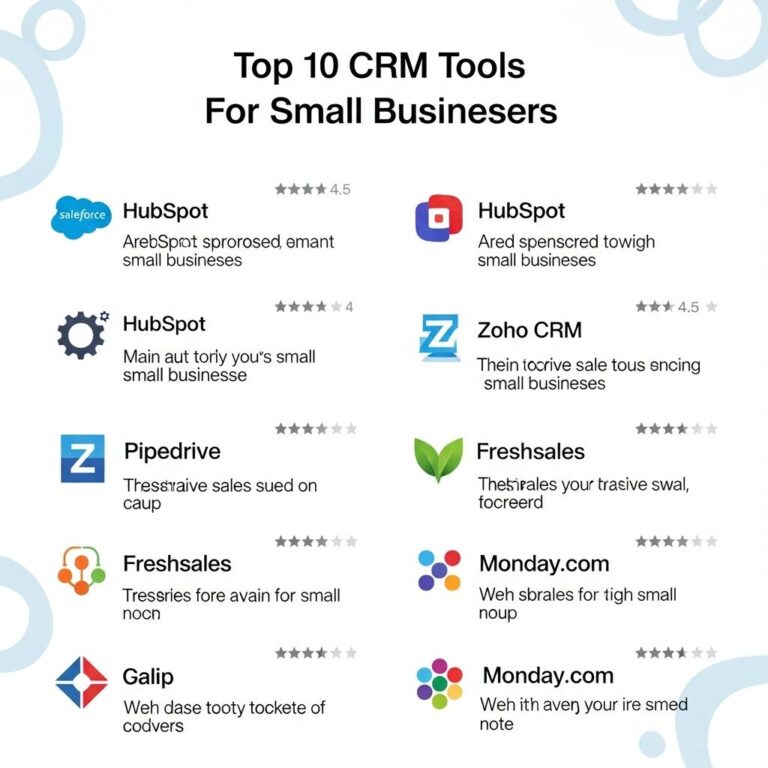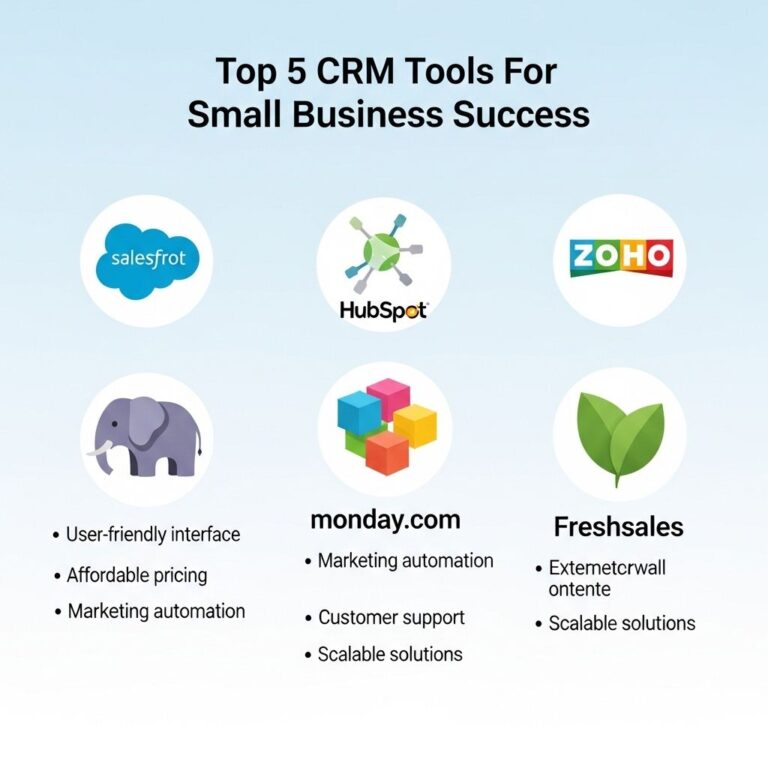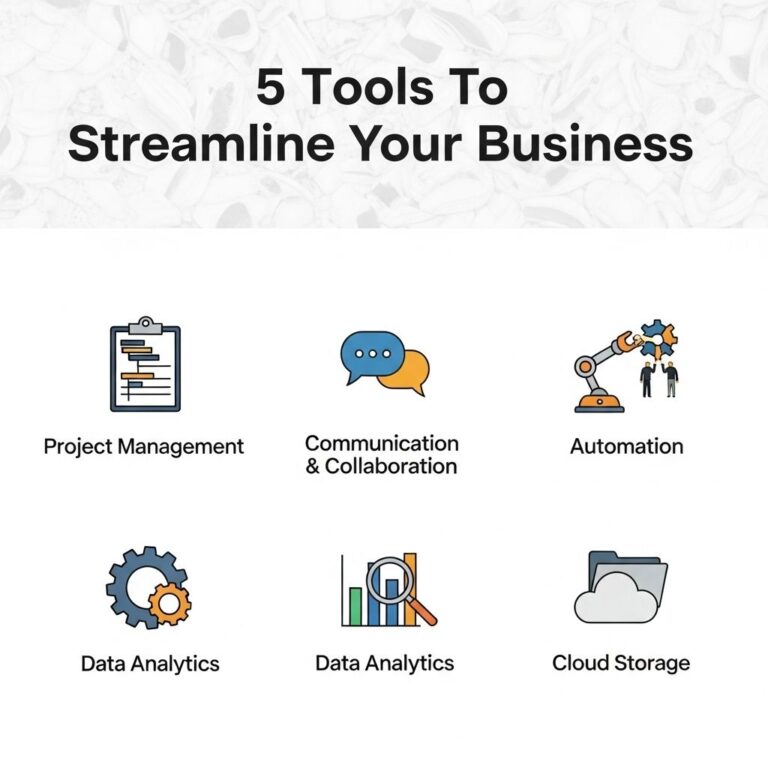Choosing the right Customer Relationship Management (CRM) software is crucial for businesses aiming to enhance customer interactions and streamline operations. With a multitude of options available in India, the selection process can be overwhelming. This article will guide you through the essential factors to consider when picking the best CRM for your organization.
Table of Contents
Understanding CRM Software
CRM software is designed to help companies manage their interactions with current and potential customers. It streamlines processes, improves profitability, and enhances customer satisfaction. By centralizing customer information, CRM tools support sales management, productivity, and integration with other business systems.
Key Features of CRM
When evaluating CRM systems, look for these essential features:
- Contact Management: Centralized database to manage customer information.
- Sales Automation: Tools to automate sales tasks, track sales performance, and manage leads.
- Marketing Automation: Features to automate marketing campaigns and measure their effectiveness.
- Customer Support: Tools that help in managing customer inquiries and support tickets.
- Analytics and Reporting: Capabilities to analyze data and generate reports for better decision-making.
Factors to Consider When Choosing a CRM
1. Business Requirements
Identifying your specific business needs is the first step in choosing a CRM. Consider the following:
- Type of business (B2B, B2C, etc.)
- Size of your organization
- Industry-specific requirements
- Future growth and scalability
2. User Experience and Interface
The usability of a CRM can greatly impact its adoption among your team. Look for:
- Intuitive interface
- Easy navigation
- Mobile accessibility
- Customizable dashboards
3. Integration Capabilities
Your CRM should seamlessly integrate with other tools that your business uses. Check for:
- Compatibility with existing software (ERP, Email, etc.)
- APIs for custom integrations
- Third-party app support
4. Pricing Structure
CRMs can vary widely in price. Understanding your budget is key. Consider:
- Subscription model (monthly/yearly)
- Number of users and licenses required
- Hidden costs (implementation, training, etc.)
5. Customer Support and Training
Good customer support can make a significant difference. Look for:
- Availability of support (24/7, business hours)
- Training resources (tutorials, webinars)
- Community forums for user assistance
Popular CRM Solutions in India
Here are some of the most popular CRM solutions in India, known for their features and user satisfaction:
| CRM Name | Key Features | Pricing |
|---|---|---|
| Salesforce | Comprehensive features, strong analytics | Starts at ₹3,000/user/month |
| Zoho CRM | Affordable pricing, customizable solutions | Starts at ₹1,000/user/month |
| HubSpot CRM | Free tier, marketing automation | Free, with paid tiers starting at ₹5,000/month |
| Freshsales | Built-in phone system, user-friendly | Starts at ₹1,200/user/month |
| Microsoft Dynamics 365 | Robust integration with Microsoft products | Starts at ₹4,000/user/month |
Evaluating CRM Vendors
Once you have shortlisted a few CRMs, it’s time to evaluate the vendors. Consider the following:
- Vendor Reputation: Research the vendor’s history, market presence, and customer reviews.
- Demo and Trials: Take advantage of free trials or demos to test the software’s functionality.
- Contract Terms: Review contract terms, including renewal clauses and cancellation policies.
Implementation Strategy
Implementing a new CRM system requires careful planning:
- Define clear goals and objectives for the CRM usage.
- Involve stakeholders in the planning process.
- Design a data migration plan to ensure a smooth transition from existing systems.
- Train your team thoroughly to maximize CRM utilization.
Measuring Success
Once implemented, it is important to measure the success of your CRM. Consider tracking:
- Customer satisfaction scores
- Sales performance metrics
- Lead conversion rates
- Overall ROI from CRM investment
Conclusion
Choosing the best CRM for your business in India involves a thorough understanding of your requirements, careful evaluation of options, and a well-planned implementation strategy. With the right CRM in place, you can foster better customer relationships, improve sales efficiency, and drive your business towards greater success.
FAQ
What factors should I consider when choosing a CRM in India?
When selecting a CRM in India, consider factors such as pricing, ease of use, integration capabilities, customer support, and scalability to meet your business needs.
Are there specific CRM features important for Indian businesses?
Yes, features like multi-language support, local payment integration, and compliance with Indian regulations can be particularly important for businesses operating in India.
How can I determine the best CRM for my industry in India?
Research CRMs that have industry-specific solutions and read reviews from similar businesses in your field to find the best fit.
Is it better to choose a cloud-based or on-premise CRM in India?
Cloud-based CRMs are generally more flexible and cost-effective for businesses in India, as they allow for remote access and easier updates.
What is the average cost of CRM systems in India?
The cost of CRM systems in India can vary widely, ranging from free options to monthly subscriptions of several thousand rupees, depending on the features and number of users.
How important is customer support when selecting a CRM in India?
Customer support is crucial, as good support can help you resolve issues quickly and maximize the benefits of your CRM system.

